Wellness
The latest Wellness breaking news, comment, reviews and features from the experts at T3
Explore Wellness
-

9 best men’s fragrance launches from January 2026 – spicy, soft scents you should know about
From Valentino to Givenchy, here’s 10 fragrances from January 2026 to look out for
By Bethan Morgan Published
-

Best memory foam mattress 2026: cosy foam support for a great night's sleep
Find the best memory foam mattress that moulds to your body for better sleep
By Bethan Morgan Last updated
-

Can’t stop snoring? These 3 everyday habits could be making it worse, says sleep expert
Improve your sleep and stop your snoring with these quick tips
By Bethan Morgan Published
-
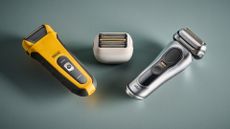
Best electric shaver 2026: top grooming options from Braun, Philips and more
Reduce stubble to rubble with the best electric shavers from Braun, Philips and other brands
By Lizzie Wilmot Last updated
-

Best women's perfumes and fragrances 2026: hit the right notes
Find the best women's perfumes, from sweet and decadent to exotic and green
By Bethan Morgan Last updated
-

Best cooling mattress 2026: drop your temperature for a better night's sleep
Banish night sweats with the best cooling mattresses and mattress cooling pads, designed to counteract heat retention
By Bethan Morgan Last updated
-
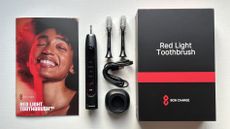
Bon Charge Red Light Toothbrush review: best oral care innovation in years or money-grabbing gimmick?
Does exposing your gums to red light therapy while you brush really reduce inflammation?
By Joanna Ebsworth Published
-
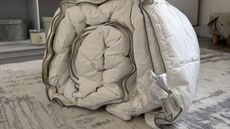
Scooms Body Temperature Regulating Luxury Duvet review: a top winter sleep upgrade
Warm cosy comfort that also keeps you cool? Meet the Scooms Body Temperature Regulating Luxury Duvet
By Lucy Miller Published
-
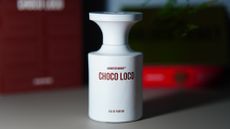
I tested Born to Stand Out Choco Loco – and I've never wanted to eat myself more
Ever wanted to smell like the most decadent hot chocolate? Now you can
By Sam Cross Published
-

5 simple ways to boost your health this January and stay motivated
It's no surprise that a lot of people are starting to feel their New Year motivation slip
By Lizzie Wilmot Published
-

What mattresses do Olympians sleep on? These Dreams mattresses are Team GB-approved and great for recovery
Dreams continues its Team GB and ParalympicsGB partnership with new mattress range
By Bethan Morgan Published
-

Back to work yoga – 5 yoga poses that relieve tension from a day of sitting
Get your body moving with these yoga postures designed to release the hamstrings, hips, shoulders and lower back
By Kat Bayly Published
-

This every day shower essential is dirtier than your toilet – here’s how to keep it clean
You’ll be surprised by how dirty this bathroom essential really is…
By Bethan Morgan Published
-
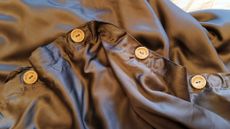
This bamboo bedding transformed my sleep – now I don't want to go back to cotton
From scepticism to silky nights: my two month test of Pretty You London's bamboo bedding delivered cooler sleep, fresher sheets and feeling of luxury
By Tom May Published
-

Acqua di Parma kicks off its 110th birthday with an exclusive scent and Michael Fassbender
The brand is reminding us about the Art of Living Italian
By Sam Cross Published
-
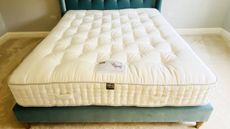
Button & Sprung Teesdale Pocket Sprung Mattress review: exceptionally comfortable, this mattress has me surrendering deeply into sleep
With its impressive 15-layer structure, this medium-firm pocket sprung mattress is filled with natural, breathable materials and comes with a 100-night trial
By Emily Peck Published
-

Best sleep tracker 2026: top wearables to improve your sleep quality
Discover the best sleep trackers to better your sleep, from budget wearables to smart under-mattress technology
By Bethan Morgan Last updated
-

I'm a wellness expert – here's 5 things I do to tackle Blue Monday
Beat Blue Monday with these 5 wellness tips
By Bethan Morgan Published
-

These 3 everyday habits are ruining your sleep, according to a sleep expert
Prioritising sleep in 2026? Then stop doing these three things…
By Bethan Morgan Published
-

This mini lab gadget detects major food allergies in your meals in minutes
Allergen Alert is a game changer for detecting food allergies
By Bethan Morgan Published
-

I tried Japanese forest bathing – here's 3 ways it improved my wellbeing
Used as a preventative measure against stress in Japan, I gave forest bathing a go to gain first-hand experience of its wellbeing benefits
By Kat Bayly Published
-

I test mattresses for a living – these 3 smart mattresses improve your sleep and are actually worth the cash
Want the best night’s sleep in 2026? Then you might want to upgrade to a smart mattress
By Bethan Morgan Published
-

Aldi takes on Lumie with its very own SAD wellness lamp dupe – and it’s a third of the price
This Aldi Wellness Lamp can help with SAD symptoms – but is it effective?
By Bethan Morgan Published
-

What is REM sleep and why is it important?
Everything you need to know about REM sleep, including what it is and how much you need
By Bethan Morgan Published
-
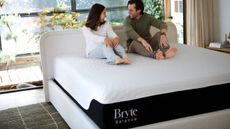
This smart mattress can rock you to sleep and stop your partner snoring
Bryte’s smart mattress might have convinced me about sleep technology
By Bethan Morgan Published
-

Best mattress 2026: choose the comfiest mattress for you
Looking for the best mattress in the UK? T3 has reviewed memory foam, springs and hybrid mattresses to help you choose
By Bethan Morgan Last updated
-
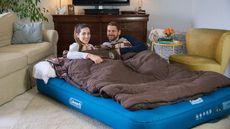
Best air mattress 2026: comfortable options for guests, camping and staycations
Find the best air mattress for guests, sleepovers and camping
By Tom May Last updated
-

Panda London just made it easier to upgrade your mattress with its new bamboo mattress topper
Panda London’s new mattress topper is here to extend your mattress’ lifespan
By Bethan Morgan Published
-

Best body groomer 2026: find the top manscapers on the market
Find the best body groomers and the best manscaping groomers for your back, torso, downstairs and everywhere else...
By Lizzie Wilmot Last updated
